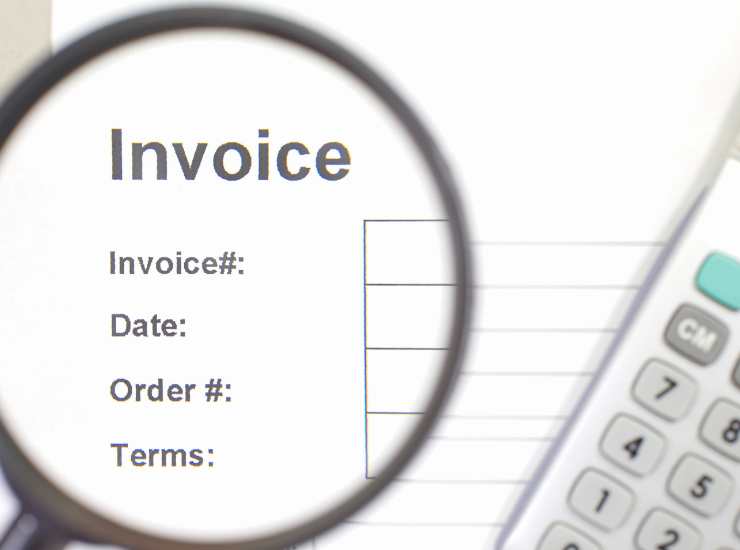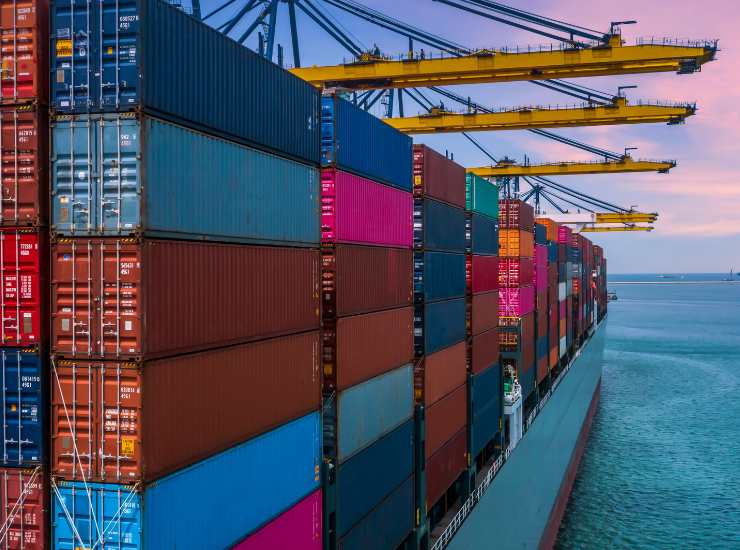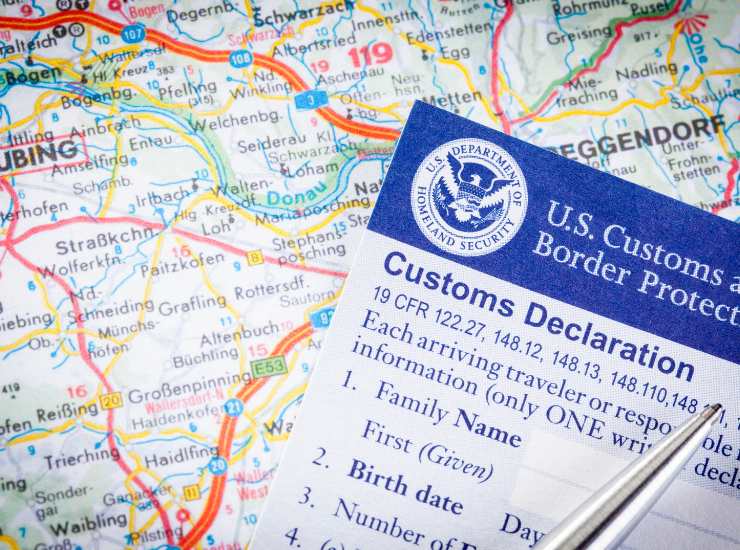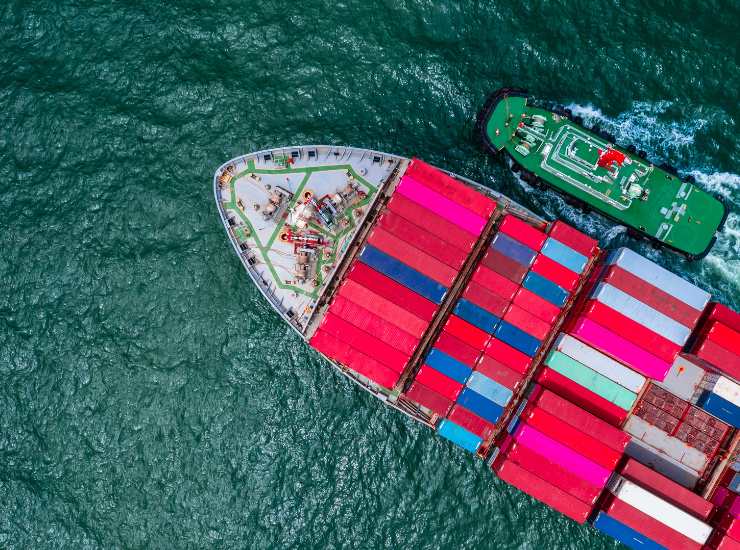Complete guide on how to import goods to Sri Lanka. Learn import procedures, customs clearance, required documents, and duty calculations for successful trade.
Introduction
Sri Lanka’s strategic location in the Indian Ocean has made it a bustling hub for international trade, with import businesses experiencing significant growth in recent years. Whether you’re an entrepreneur looking to source products from overseas or an established business expanding your supply chain, understanding the import process is essential for success.
Navigating customs regulations, documentation requirements, and duty calculations can seem overwhelming, especially for first-time importers. However, with the right knowledge and support, importing goods to Sri Lanka can be straightforward and profitable. This comprehensive trade guide will walk you through every step of the import procedure, from identifying HS codes to final cargo delivery, ensuring your goods clear customs smoothly and reach you on time.
Understanding Sri Lanka’s Import Regulations
Sri Lanka Customs operates under the Ministry of Finance and is the primary authority governing all imports into the country. The department ensures compliance with trade regulations, collects revenue, and facilitates legitimate trade while preventing prohibited items from entering the nation.

The Import Control Department, another key regulatory body, works alongside Sri Lanka Customs to issue import licenses and monitor restricted goods. Understanding which agency oversees your specific products is crucial for compliance.
Not all goods can be freely imported into Sri Lanka. Items are classified into three categories: freely importable goods, restricted goods (requiring special licenses), and prohibited goods (banned entirely). Restricted items typically include agricultural products, pharmaceuticals, chemicals, food items, and certain electronics. Prohibited goods include narcotics, weapons, and items that violate local laws or international conventions.
Before initiating any import to Sri Lanka, verify your product’s import status through the Sri Lanka Customs website or consult with experienced customs agents to avoid costly delays or legal complications.
Essential Documents Required for Importing
Proper documentation is the backbone of successful customs clearance in Sri Lanka. Missing or inaccurate paperwork is one of the most common causes of shipment delays. Here are the essential import documents you’ll need:
Commercial Invoice
The commercial invoice is issued by your supplier and serves as proof of the transaction. It must include detailed information about the goods, including description, quantity, unit price, total value, payment terms, and both seller and buyer details. This document forms the basis for customs valuation and duty calculation.
Bill of Lading or Airway Bill
For sea freight, the Bill of Lading (B/L) serves as proof of shipment and ownership of goods. For air freight, an Airway Bill performs the same function. This document is issued by the shipping company or freight forwarder and is essential for cargo release at the port or airport.
Packing List
A detailed packing list describes how goods are packaged, including the number of packages, dimensions, weight, and contents of each package. This helps customs officials verify the shipment and conduct inspections efficiently.
Certificate of Origin
This document certifies the country where the goods were manufactured. It’s particularly important for claiming preferential duty rates under trade agreements and ensuring compliance with import restrictions based on origin.
Import License
Certain restricted goods require an import license from the Import Control Department or the relevant regulatory authority. This must be obtained before shipping and presented during customs clearance.
Specialized Certificates
Depending on your product category, you may need additional certificates such as phytosanitary certificates for plants and agricultural products, health certificates for food items and animal products, quality certificates for electronics and machinery, or halal certificates for food products targeting Muslim consumers.
Need help with import documentation? Contact our experts for comprehensive documentation support.
Step-by-Step Import Process to Sri Lanka
Understanding the import procedure helps you plan timelines, budget accurately, and avoid common pitfalls. Here’s a detailed breakdown of each step:
Step 1: Identify HS Code and Check Import Restrictions
Every product has a unique Harmonized System (HS) code, an internationally standardized system for classifying traded products. Your HS code determines applicable customs duties, taxes, and whether your product requires special licenses.
Use the Sri Lanka Customs Tariff Guide to find your product’s correct HS code. Verify whether your product falls under restricted or prohibited categories. This initial research can save you from expensive mistakes later.
Step 2: Obtain Necessary Licenses and Permits
If your goods require an import license or special permits, apply for them well in advance. Processing times vary depending on the product and issuing authority.
Common licensing authorities include the Import Control Department for general restricted goods, the Department of Agriculture for plant and agricultural products, the National Medicines Regulatory Authority for pharmaceuticals, and the Telecommunications Regulatory Commission for telecommunications equipment.
Step 3: Arrange Shipping and Freight Forwarding
Choose a reliable freight forwarder to handle international shipping. They’ll coordinate with shipping lines or airlines, arrange cargo space, manage logistics, and provide you with necessary shipping documents.
Decide between sea freight (cost-effective for large shipments) and air freight (faster but more expensive). Your freight forwarder should provide you with a shipping schedule and estimated arrival date.
Step 4: Prepare Import Documentation
Gather all required documents before your shipment arrives. Ensure accuracy in every detail, as even minor discrepancies can cause delays. Your documentation package should be complete and ready for submission when the cargo reaches Sri Lankan ports.
Step 5: Submit Customs Declaration (CUSDEC)
Once your goods arrive, you or your customs agent must submit a Customs Declaration (CUSDEC) electronically through the ASYCUDA World system. This declaration includes detailed information about the shipment, HS codes, values, and supporting documents.
The system will generate an assessment notice showing payable duties and taxes. Accuracy in this step is critical for smooth clearance.
Step 6: Pay Customs Duties and Taxes
Based on the customs assessment, you’ll need to pay applicable duties and taxes. Sri Lanka typically charges customs duty (varies by HS code), Value Added Tax (VAT) at 15%, Ports and Airports Development Levy (PAL), and Special Commodity Levy (SCL) for certain agricultural products.
Payment can be made electronically through approved banks. Retain payment receipts as proof for cargo release.
Step 7: Customs Inspection and Clearance
Sri Lanka Customs may conduct physical inspections of shipments, either randomly or based on risk assessment. Inspections verify that goods match documentation, check for prohibited items, and ensure proper valuation.
If everything is in order, customs will grant clearance and authorize cargo release. This process typically takes 1-3 days for straightforward shipments but can extend longer if issues arise.
Step 8: Cargo Release and Delivery
After clearance, your goods can be released from the port or airport. Arrange transportation to your warehouse or business location. Be mindful of demurrage charges (storage fees) that accrue if cargo isn’t collected promptly after clearance.
Working with a logistics partner who provides end-to-end services ensures timely delivery and reduces stress throughout this process.
Understanding Customs Duties and Taxes in Sri Lanka
Proper duty calculation is essential for budgeting and pricing your imported products. Here’s how customs duties and taxes work:
Customs duty is calculated as a percentage of the CIF value (Cost, Insurance, and Freight). The percentage varies widely based on the HS code and can range from 0% to over 100% for certain luxury or protected goods.
After customs duty, VAT is applied at 15% on the sum of the CIF value plus customs duty. Some essential items may be exempt from VAT or subject to reduced rates.
The Ports and Airports Development Levy (PAL) is typically 7.5% of the CIF value for most goods, though rates vary. The Special Commodity Levy applies to specific agricultural products to protect local industries.
Sri Lanka offers duty exemptions and concessions under various circumstances, including imports for export-oriented businesses under Board of Investment (BOI) approval, goods imported under bilateral or multilateral trade agreements, capital goods for development projects, and items for charitable or educational institutions.
Accurate HS code classification is paramount because the wrong code can result in overpayment, underpayment, leading to penalties, delayed clearance while authorities investigate, or rejection of your import license applications. Professional customs agents have expertise in HS code classification and can ensure you pay the correct amount while remaining compliant.
Avoid costly import mistakes. Learn about our customs clearance services and get expert duty calculation support.
Common Mistakes Importers Make
Learning from common pitfalls can save you time, money, and frustration. Here are mistakes to avoid when importing goods to Sri Lanka:
Incorrect HS Code Classification: Many importers select the wrong HS code, leading to incorrect duty assessments. Always verify codes with customs experts or use official tariff guides.
Incomplete or Inaccurate Documentation: Missing information, typos, or inconsistencies between documents cause immediate red flags. Double-check all paperwork before submission and ensure consistency across all documents.
Undervaluing Goods: Some importers undervalue shipments to reduce duty payments. This is illegal and can result in severe penalties, cargo seizure, and legal action. Always declare accurate values.
Not Checking for Import Restrictions: Assuming all goods can be freely imported is a costly mistake. Always verify whether your products require licenses before placing orders with suppliers.
Poor Packaging Leading to Damage: Inadequate packaging results in damaged goods and insurance claims. Ensure your supplier uses appropriate packaging for international shipping and handling.
Not Working with Experienced Customs Agents: First-time importers often try to handle customs clearance themselves, leading to errors and delays. Professional customs agents navigate the process efficiently and ensure compliance.
Missing Deadlines and Incurring Demurrage Charges: Delays in documentation or payment result in storage charges that accumulate daily. Plan ahead and act promptly to avoid unnecessary costs.
How G.A. Enterprises Simplifies Your Import Process
At G.A. Enterprises, we understand that importing goods involves complex procedures, tight deadlines, and regulatory compliance. That’s why we offer comprehensive import and customs clearance services designed to make your international trade seamless and stress-free.
Our team of experienced professionals handles every aspect of the import procedure, from initial consultation to final delivery. We provide expert HS code classification and duty calculation, ensuring accuracy and cost optimization. Our strong relationships with Sri Lanka Customs, freight forwarders, and shipping lines enable us to expedite clearance and resolve issues quickly.
We manage all import documentation, including license applications, CUSDEC submissions, and coordination with regulatory authorities. Our transparent process keeps you informed at every stage, with real-time updates on your shipment status.
Whether you’re importing machinery, consumer goods, raw materials, or specialized products, we tailor our services to your specific needs. Our competitive pricing structure eliminates hidden fees and surprise charges, giving you complete clarity on costs from the start.
By partnering with G.A. Enterprises, you save valuable time that you can reinvest in growing your business. We handle the complexities while you focus on what you do best. Our proven track record of successful clearances and satisfied clients speaks to our commitment to excellence.
Our services extend beyond customs clearance to include freight forwarding coordination, transportation and logistics, warehousing solutions, and ongoing business consulting to optimize your import operations for long-term success.
Conclusion
Importing goods to Sri Lanka doesn’t have to be complicated when you understand the process and have the right support. From identifying HS codes and obtaining licenses to customs clearance and final delivery, each step requires attention to detail and regulatory knowledge.
By following this comprehensive trade guide and avoiding common mistakes, you’ll be well-equipped to import successfully. However, partnering with experienced professionals can transform the import experience from stressful to seamless.
Ready to start importing or streamlining your existing operations? Contact G.A. Enterprises today for expert guidance and end-to-end import solutions.
📧 Email: enterprisesga671@gmail.com
📱 Phone: +94 77 982 4145 | +94 77 940 6413
🌐 Visit: https://gaenterpriseslk.com/
📋 Request a Service Quote
About G.A. Enterprises
G.A. Enterprises is a trusted Sri Lanka-based partnership company specializing in import & export, customs clearance, transportation & logistics, and business consulting. With a commitment to professionalism, transparency, and efficiency, we help businesses navigate international trade with confidence. Our mission is to simplify global trade by providing reliable logistics and customs services that enable your business to thrive in the competitive international marketplace.




